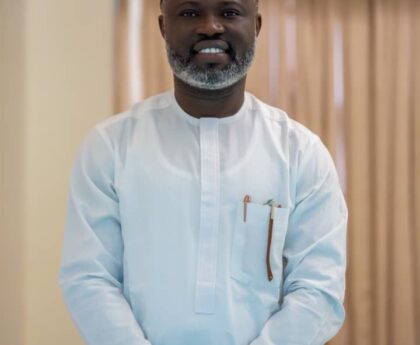Written by Dada Oluwabamise
In the bustling community of Eyenkorin near Ilorin, Kwara State, a group of resilient women has taken center stage in the art of Garri production, a cherished staple in Nigerian households. Comprising nearly 100 individuals, these women are facing substantial challenges due to the far-reaching impacts of climate change on their craft.
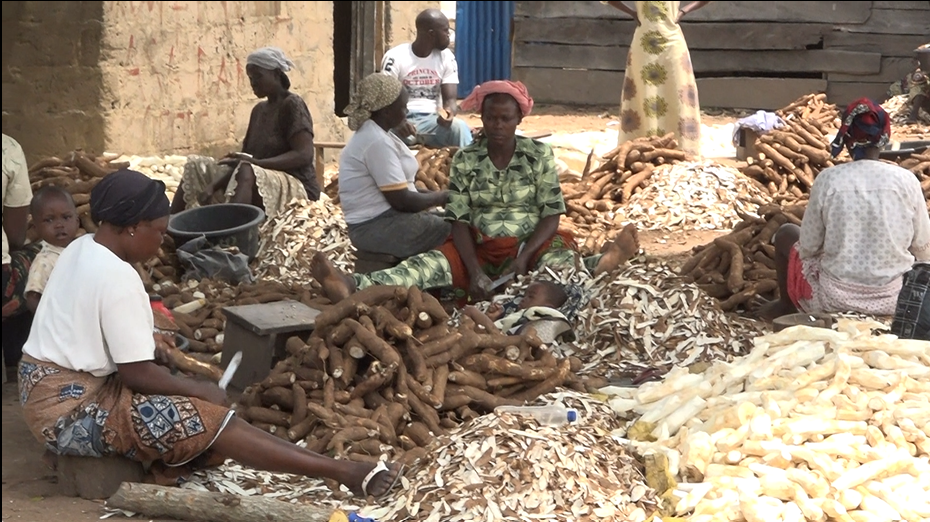
During interviews, five women, each representing their peers, provided a poignant narrative on the profound consequences of climate change on their livelihoods.
In the midst of Eyenkorin’s garri production hub, Esther Okanlawon’s poignant words resonate, highlighting the centrality of cassava to their existence. She passionately declared, “Cassava is our lifeline, and climate change is strangling it. Our farmers, the backbone of our garri production, are grappling with unprecedented challenges.”
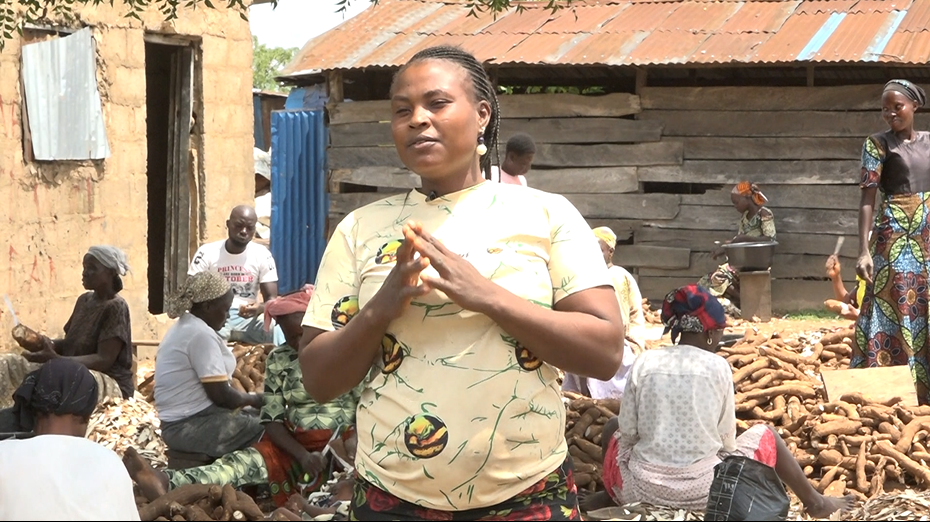
Felicia Ojeyinka , with a deep sense of cultural responsibility, echoed Aisha’s concerns, emphasizing the broader implications of climate change. “Garri is not just food; it’s tradition,” Felicia proclaimed. “If we lose cassava to climate change, we lose a part of our identity—a connection to our roots.” This sentiment was not lost on the other women, who all emphasized the profound significance of garri in sustaining families and preserving cultural heritage across Nigeria.

The shadow of uncertainty cast by unpredictable weather patterns weighed heavily on the minds of these resilient women. Fatima shared her lament, saying, “We never know what the weather will bring. Our farmers are finding it hard to keep up, and this disruption is rippling through the cassava supply chain.” This disruption directly translates to challenges in maintaining both the quantity and quality of cassava essential for garri production.
Amidst these challenges, Ifeseyi Adio offered a glimpse into the collective determination of the women to adapt and persevere. “We’re changing how we farm,” Ifeseyi explained, “implementing practices that conserve water and experimenting with cassava varieties resilient to the changing climate. Our commitment is unwavering; we are resolute in keeping our tradition alive.”
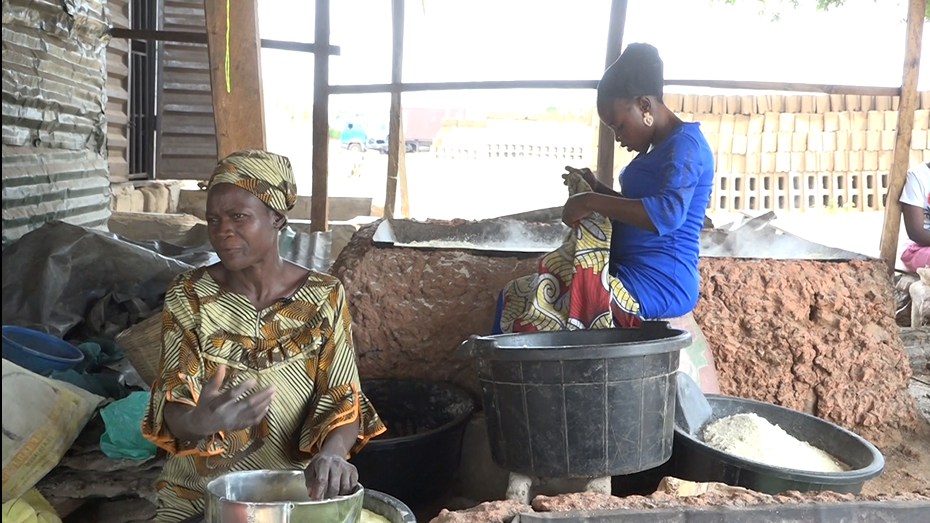
Adding depth to the narrative, Victoria Olayanju another member of the group, emphasized the ripple effects on their community. “Our garri is not just sustenance; it’s an economic pillar for Eyenkorin. If we lose this battle with climate change, our entire community suffers.”
In a resounding chorus of determination, Halima Ahmed, the fifth woman, encapsulated the collective spirit of the group, stating, “We face adversity, but we are not defeated. Our garri represents resilience, and together, we will overcome the challenges brought by climate change.”
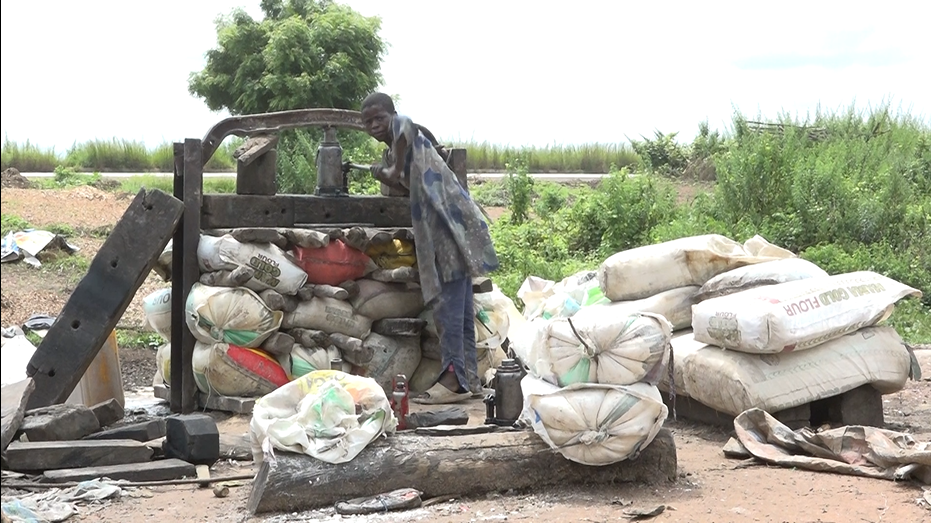
The struggles faced by these women in Eyenkorin are emblematic of a broader narrative—a narrative of communities grappling with the repercussions of climate change on their cultural practices and economic stability. As these women press forward with their innovative solutions, their stories serve as a powerful testament to the indomitable spirit of those fighting to preserve tradition in the face of an ever-changing climate.
The challenges faced by the women in Eyenkorin extend beyond the fields, and Aliyu Okanlawon, the coordinator, provides a crucial male perspective on the broader implications of climate change. “Our coordination is crucial in tackling these challenges,” Aliyu stressed. “We need collaboration with local authorities and experts to develop comprehensive strategies that address the specific challenges faced by garri producers in Eyenkorin.”

He shed light on a critical need for sustainable water supply, indicating, “Our business relies heavily on water, and with changing weather patterns, it’s becoming increasingly unpredictable. If the government or spirited individuals could assist us in sinking a borehole, it would significantly alleviate one of our major concerns.”
Aliyu also delved into the current economic strains on their production, highlighting the soaring costs of cassava. “The prices of cassava have skyrocketed, putting additional pressure on our already challenged supply chain. We need support and interventions to stabilize prices and ensure the economic viability of our garri production.”
In navigating these complexities, Aliyu stressed the importance of a united front. “Our community is resilient, but we can achieve more with collective efforts. We need partnerships that extend beyond Eyenkorin, reaching government agencies, agricultural experts, and individuals willing to invest in our sustainable future.”
As the women and their coordinator tackle these multifaceted challenges, their plea for collaboration, water access, and economic support resonates not only within Eyenkorin but also as a call to action for a broader community willing to stand together in the face of climate change’s far-reaching impacts.




